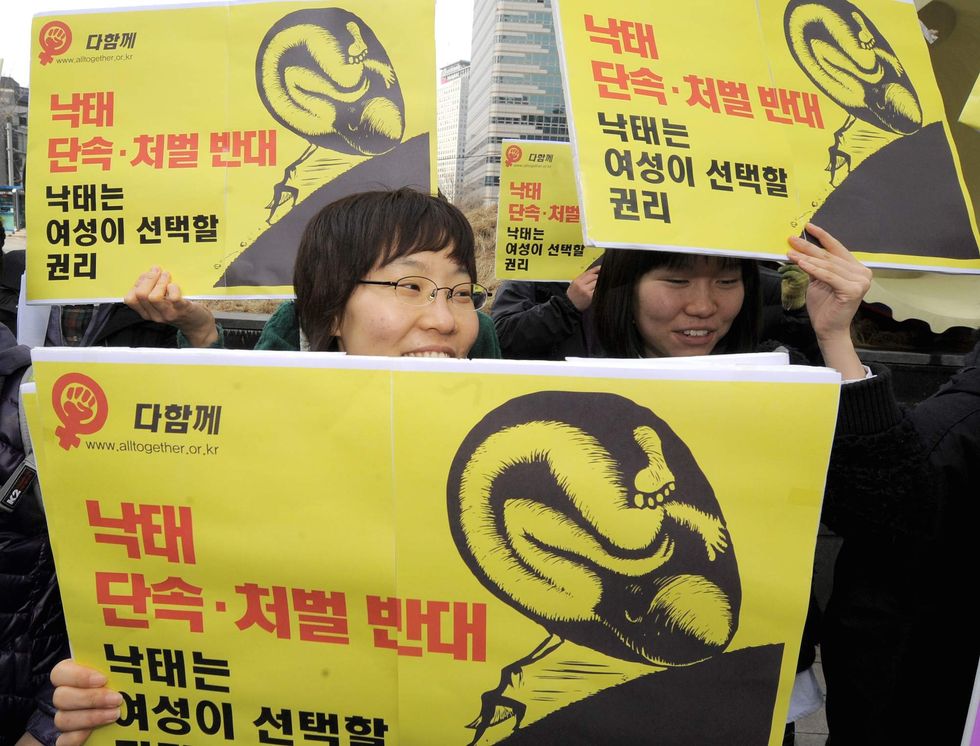
South Korean women hold up placards that say "Stop a crackdown on abortion that violates women's rights" during a March 2010 rally at a downtown park in Seoul. The president’s office recently said the government will begin research on whether to overturn the abortion ban. (2010 file photo/Jung Yeon-Je/AFP/Getty Images)


